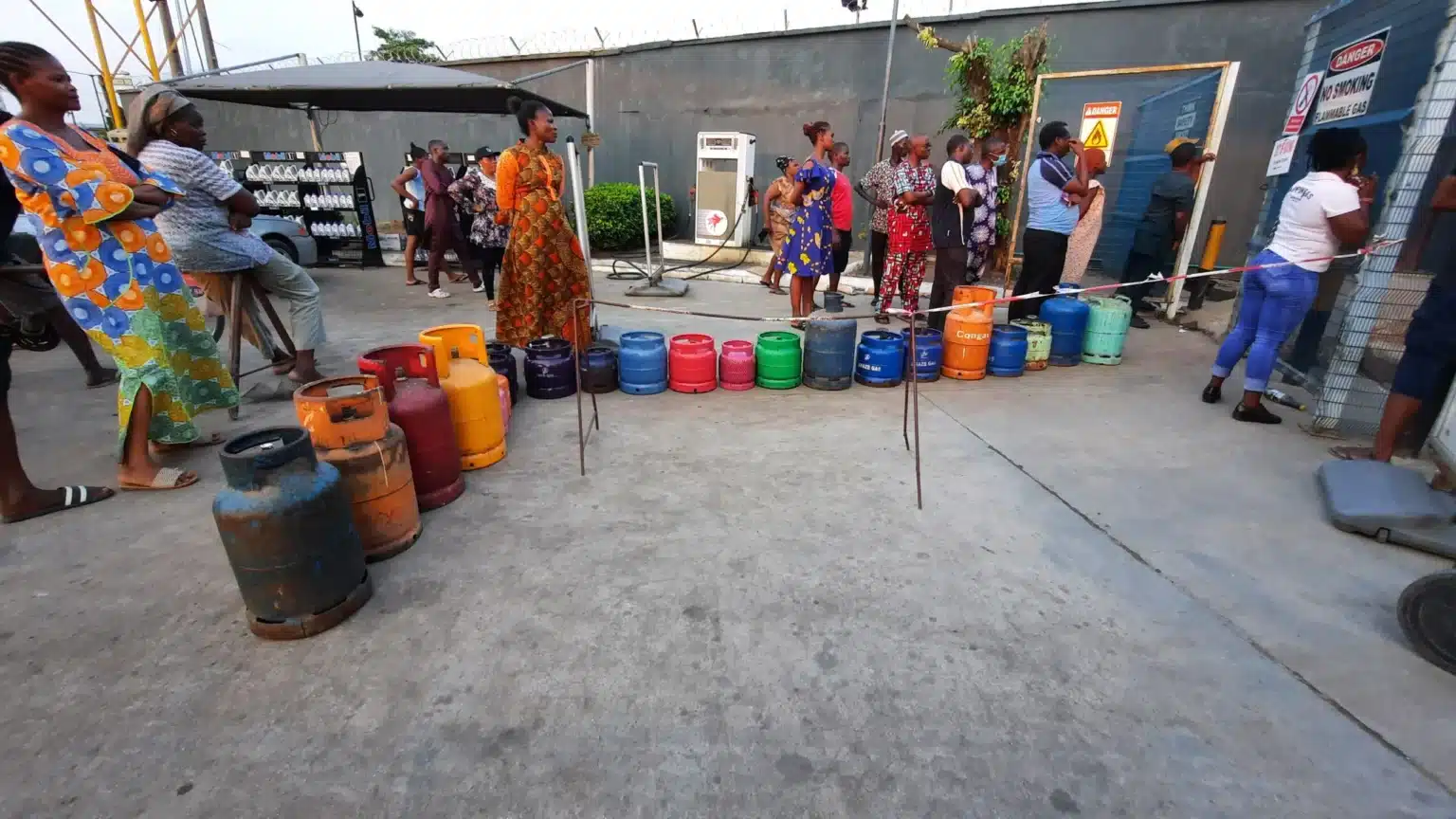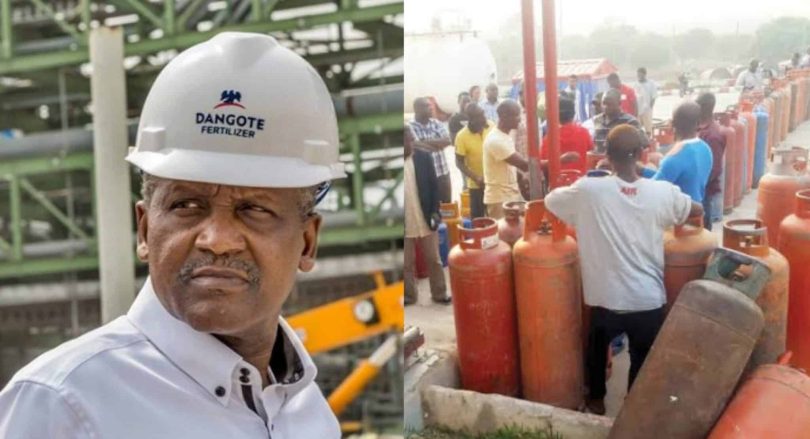Nigerians can now heave a sigh of relief as Dangote Refinery has once again reduced the ex-depot price of Liquefied Petroleum Gas (LPG), popularly known as cooking gas, to ₦760 per kilogram.
The latest price drop comes at a time when the cost of cooking gas has been soaring across the country, putting pressure on households.
Competitors sell at higher prices
Reports show that other major depots are still selling at much higher prices. Matrix and Ardova depots currently sell cooking gas for ₦920 per kilogram, while A.Y.M Shafa and NIPCO offer it at ₦910. Stockgap Depot tops the list with a price of ₦950 per kilogram.
This means Dangote’s price is between ₦150 and ₦190 cheaper per kilogram compared to other suppliers. The move is seen as part of Dangote’s strategy to drive down prices and make cooking gas more affordable for Nigerians.
Industry experts commend Dangote’s move
Analysts believe this price cut is a calculated effort by the refinery to bring stability to the LPG market. They say the company is working to discourage unnecessary price hikes that have affected consumers in the past.
An industry expert noted, “Dangote’s post-maintenance price cut shows intent, not only to restore supply volumes but also to bring discipline back to the domestic LPG market.”
Gas prices still high across the country
Despite Dangote’s intervention, retail prices of cooking gas in some parts of the country have climbed sharply. In Lagos and other states, consumers have reported paying between ₦1,000 and ₦3,000 per kilogram in recent weeks.

The scarcity has led to long queues at filling stations and gas plants, leaving many Nigerians frustrated as they struggle to refill their cylinders.
NNPCL blames strike for price surge
Meanwhile, the Group Chief Executive Officer of the Nigerian National Petroleum Company Limited (NNPCL), Bayo Ojulari, has explained that the recent rise in gas prices was caused by the industrial action of the Petroleum and Natural Gas Senior Staff Association of Nigeria (PENGASSAN).
Speaking to reporters after visiting President Bola Tinubu at the State House on Sunday, Ojulari said the strike disrupted gas loading and distribution across the country for several days, which created an artificial shortage and pushed prices up.
He, however, assured Nigerians that prices would soon stabilise as normal supply resumes.

